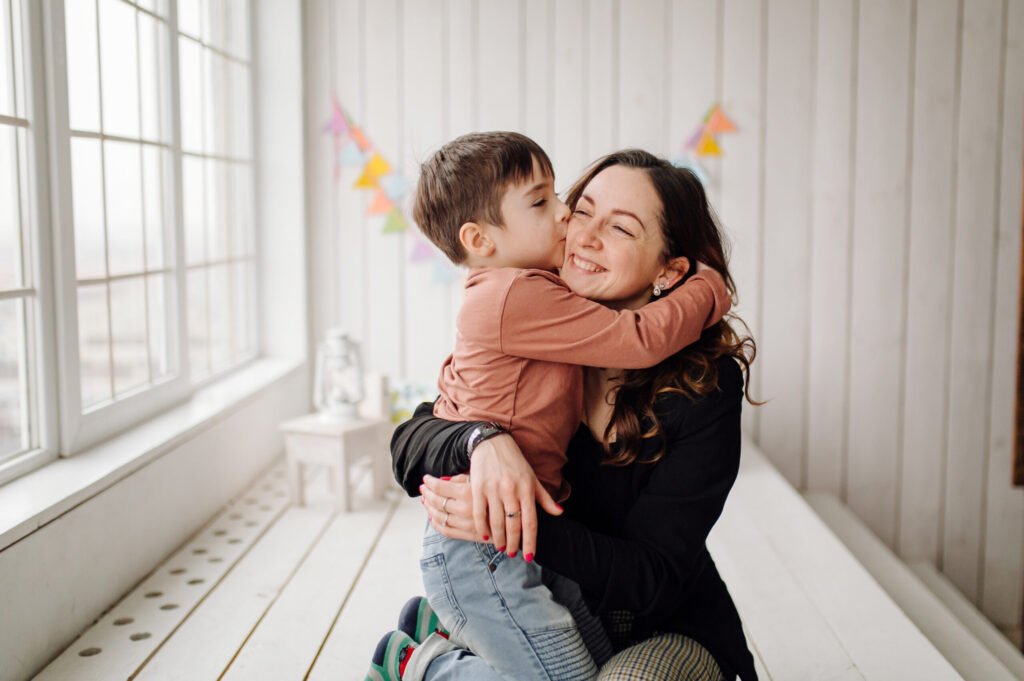Being a single parent is not easy. You have to juggle between work, household chores, and raising your kids. You may feel overwhelmed, stressed, and lonely at times. You may also face some challenges that other parents don’t, such as financial difficulties, social stigma, or lack of support.
But you are not alone. There are millions of single parents around the world who are doing their best to provide a loving and nurturing environment for their children. You are also strong, resilient, and capable of overcoming any obstacle that comes your way.
One of the ways to cope with the challenges of single parenting is to practice self-reflection. Self-reflection for single parents is the process of examining your thoughts, feelings, actions, and experiences. It can help you gain insight and perspective on yourself, your situation, and your goals. It can also help you improve your emotional resilience, your parenting skills, and your well-being.
So in this blog you’ll come across to various topics of stress management as single parent. So, without ado let’s get started with benefits for self-reflection for single parents.

Benefits of Self- Reflection For Single Parents
Here are some benefits of self-reflection for single parents:
1. It helps you understand yourself better. By reflecting on your strengths, weaknesses, values, and beliefs, you can discover what makes you unique and what motivates you. You can also identify your needs, desires, and emotions, and how they affect your behavior and decisions. This can help you become more self-aware, confident, and authentic.
2. It helps you cope with stress and negative emotions. By reflecting on your challenges, struggles, and failures, you can learn from them and find ways to overcome them. You can also acknowledge and express your feelings, such as anger, sadness, guilt, or fear, and release them in healthy ways. This can help you reduce your stress levels, improve your mood, and enhance your mental health.
3. It helps you appreciate your achievements and successes. By reflecting on your accomplishments, milestones, and victories, you can celebrate them and recognize your efforts and hard work. You can also appreciate the positive aspects of your life, such as your family, friends, hobbies, or passions. This can help you boost your self-esteem, happiness, and gratitude.
4. It helps you grow and improve as a single parent. By reflecting on your single parenting style, methods, and goals, you can evaluate what works and what doesn’t for you and your kids. You can also seek feedback, advice, or support from others, such as your co-parent, relatives, friends, or professionals. This can help you develop new skills, strategies, and solutions to deal with the parenting challenges you face.
5. It helps you plan and prepare for the future. By reflecting on your dreams, aspirations, and vision, you can set realistic and attainable goals for yourself and your kids. You can also create action plans, schedules, and routines to help you achieve them. This can help you stay focused, organized, and motivated.
How to practice self-reflection as a Single Parent
Self-reflection is not something that you do once in a while. It is a habit that you can cultivate and practice regularly. Here are some tips on how to practice self-reflection as a single parent:
1. Find a quiet and comfortable place and time. You need to have some space and time for yourself, away from the distractions and noises of your daily life. You can choose a place that makes you feel relaxed, such as your bedroom, your garden, or a park. You can also choose a time that suits you, such as early in the morning, late at night, or during your lunch break.
2. Use a journal, a notebook, or an app. Writing down your thoughts and feelings can help you organize and clarify them. You can use a journal, a notebook, or an app to record your reflections. You can also use prompts, questions, or templates to guide your writing. For example, you can use the following questions to start your reflection:
– What did I do well today?
– What did I learn today?
– What did I enjoy today?
– What did I struggle with today?
– What did I regret today?
– What am I grateful for today?
– What do I need to improve on tomorrow?
– What are my goals for tomorrow?
3. Be honest and open-minded. The purpose of self-reflection is not to judge or criticize yourself, but to understand and improve yourself. You need to be honest and open-minded with yourself, and accept your flaws and mistakes as well as your strengths and achievements. You also need to be willing to change and grow, and to try new things and experiment with different approaches.
4. Be kind and compassionate. Self-reflection is not a way to punish or blame yourself, but to support and nurture yourself. You need to be kind and compassionate with yourself, and treat yourself as you would treat a friend. You also need to acknowledge and appreciate your efforts and hard work, and reward yourself for your progress and success.
5. Share and discuss your reflections with others. Self-reflection for single parents is not a solitary activity, but a social one. You can benefit from sharing and discussing your reflections with others, such as your co-parent, relatives, friends, or professionals. They can offer you different perspectives, insights, and feedback, as well as encouragement, empathy, and advice.
Self-care For Single Parents
For single parents, self-care isn’t a luxury, it’s a necessity. Through self-reflection, they discover what nourishes them, and self-care practices become personalized tools to maintain their physical, mental, and emotional well-being. It can help you deal with stress, boost your well-being, and improve your quality of life.
Here are some examples of self-care activities for single parents:
1. Exercise regularly
Exercise can help you release endorphins, improve your mood, and boost your energy. It can also help you maintain your weight, strengthen your muscles, and prevent diseases. You can choose an exercise that you enjoy, such as walking, jogging, cycling, swimming, or dancing. You can also involve your kids in your exercise routine, such as playing soccer, basketball, or tennis with them.
2. Eat healthily
Eating healthily can help you nourish your body, mind, and soul. It can also help you prevent or manage health issues, such as diabetes, hypertension, or obesity. You can choose a balanced diet that includes fruits, vegetables, whole grains, lean proteins, and healthy fats. You can also cook and eat with your kids, and teach them about nutrition and healthy eating habits.
3. Sleep well
Sleeping well can help you restore your energy, improve your memory, and enhance your concentration. It can also help you regulate your emotions, lower your stress levels, and boost your immune system. You can aim for seven to nine hours of sleep per night, and follow a regular sleep schedule. You can also create a relaxing bedtime routine, such as reading, meditating, or listening to music.
4. Relax and have fun
Relaxing and having fun can help you unwind, recharge, and enjoy life. It can also help you reduce your anxiety, depression, and boredom. You can choose activities that make you feel happy, calm, and fulfilled, such as reading, writing, painting, gardening, or playing games. You can also spend quality time with your kids, and do things that you both love, such as watching movies, going to the zoo, or baking cookies.
5. Connect and socialize
Connecting and socializing can help you feel supported, understood, and valued. It can also help you expand your network, learn new things, and have new experiences. You can choose people who are positive, respectful, and trustworthy, such as your family, friends, co-workers, or neighbors. You can also join groups, clubs, or communities that share your interests, values, or goals, such as a book club, a yoga class, or a single parent support group.
Conclusion
Single parenting is a challenging but rewarding journey. You can make it easier and more enjoyable by practicing self-reflection. Self-reflection for single parents can help you gain insight and perspective on yourself, your situation, and your goals. It can also help you improve your emotional resilience, your parenting skills, and your well-being.
Self-reflection is also an essential part of self-care for single parents. Self-care can help you cope with stress, improve your well-being, and enhance your quality of life. You can practice self-care by taking care of your physical, mental, and emotional health, and by doing things that make you happy, calm, and fulfilled.
Remember, you are not alone. You are strong, resilient, and capable. You are also a wonderful parent, and your kids love you. You deserve to be happy, healthy, and successful. Just keep reflecting, growing, and improving. You got this! ✨





